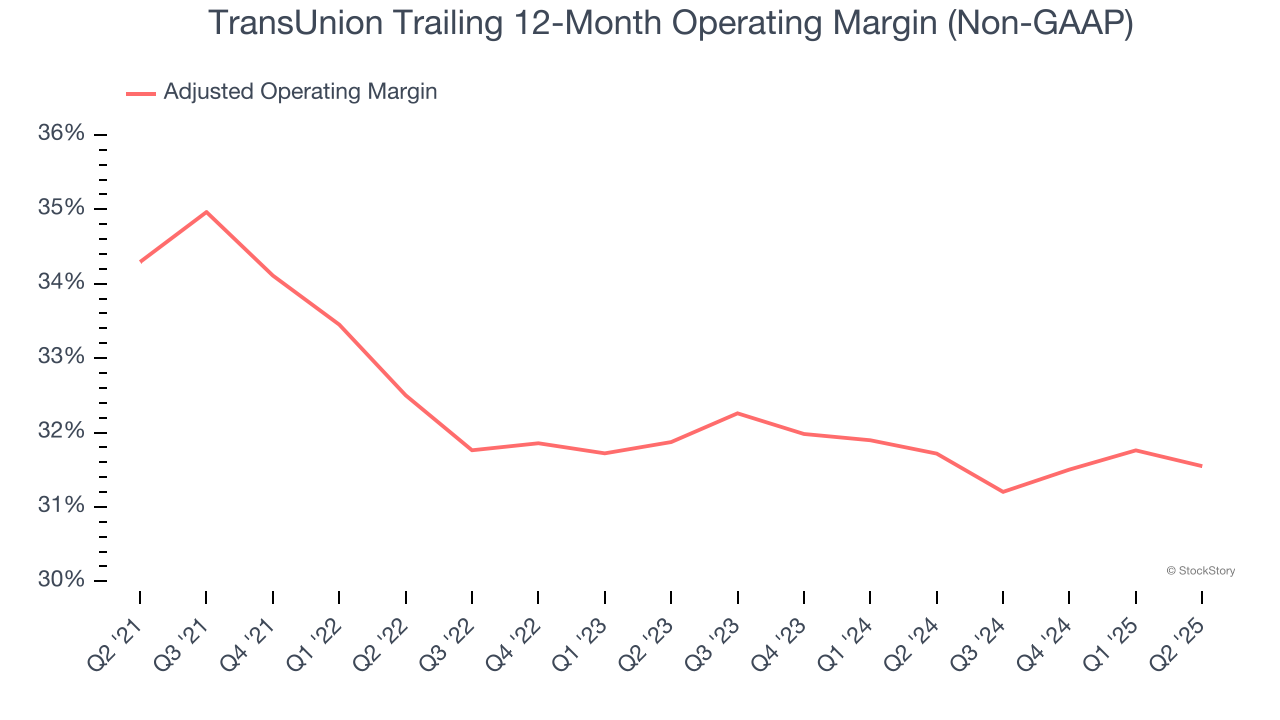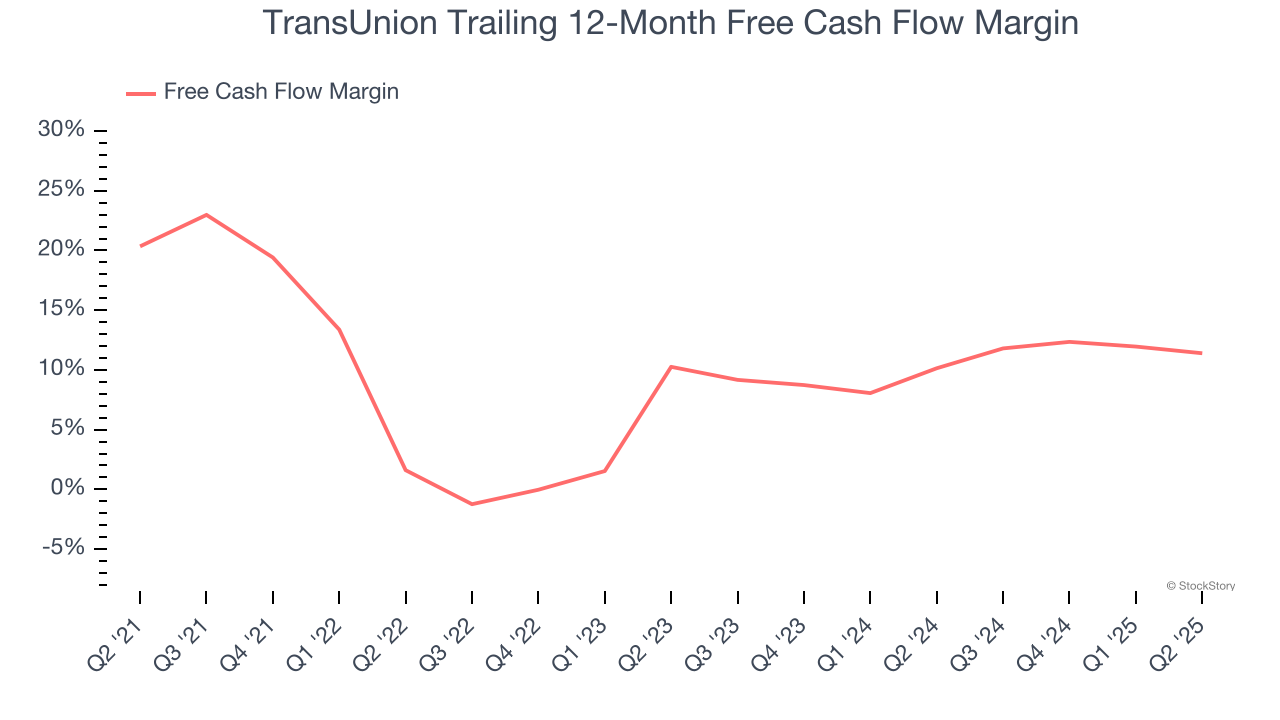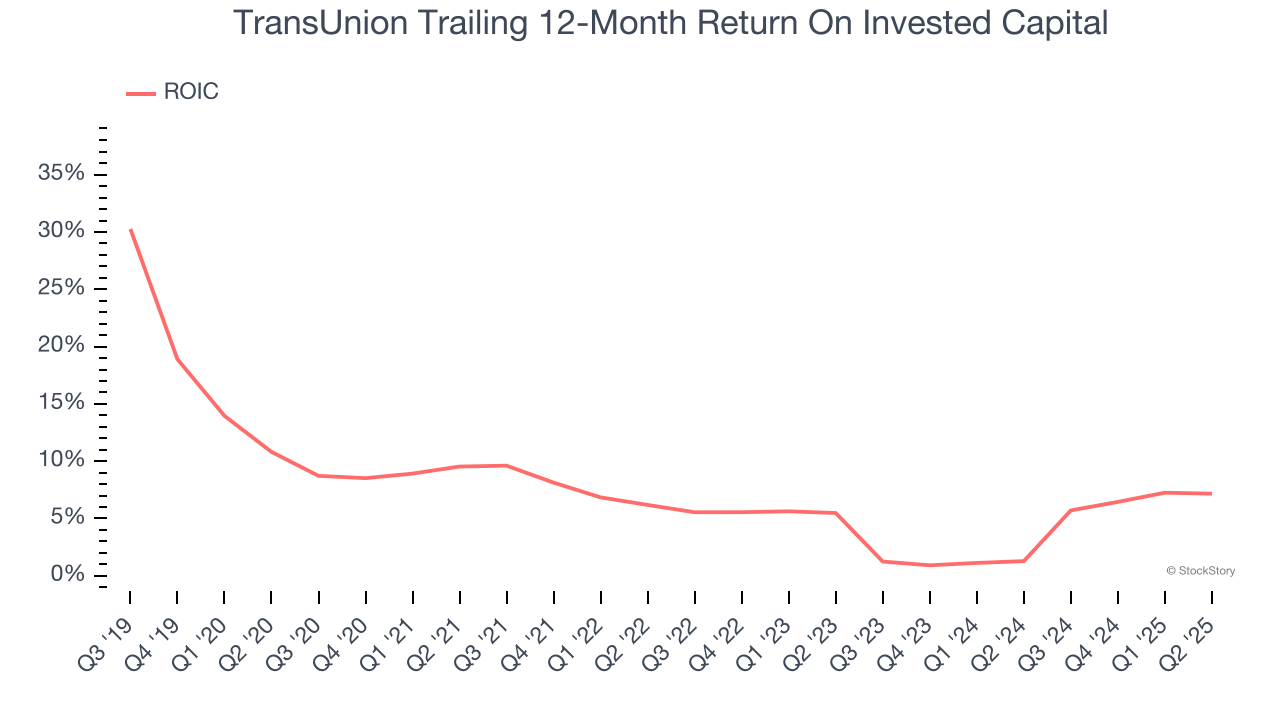
Over the past six months, TransUnion’s stock price fell to $87.89. Shareholders have lost 12.3% of their capital, which is disappointing considering the S&P 500 has climbed by 5.4%. This might have investors contemplating their next move.
Is there a buying opportunity in TransUnion, or does it present a risk to your portfolio? Get the full breakdown from our expert analysts, it’s free.
Why Is TransUnion Not Exciting?
Despite the more favorable entry price, we're sitting this one out for now. Here are three reasons why you should be careful with TRU and a stock we'd rather own.
1. Shrinking Adjusted Operating Margin
Adjusted operating margin is a key measure of profitability. Think of it as net income (the bottom line) excluding the impact of non-recurring expenses, taxes, and interest on debt - metrics less connected to business fundamentals.
Analyzing the trend in its profitability, TransUnion’s adjusted operating margin decreased by 2.7 percentage points over the last five years. This raises questions about the company’s expense base because its revenue growth should have given it leverage on its fixed costs, resulting in better economies of scale and profitability. Its adjusted operating margin for the trailing 12 months was 31.5%.

2. Free Cash Flow Margin Dropping
Free cash flow isn't a prominently featured metric in company financials and earnings releases, but we think it's telling because it accounts for all operating and capital expenses, making it tough to manipulate. Cash is king.
As you can see below, TransUnion’s margin dropped by 8.9 percentage points over the last five years. If its declines continue, it could signal increasing investment needs and capital intensity. TransUnion’s free cash flow margin for the trailing 12 months was 11.4%.

3. Previous Growth Initiatives Haven’t Impressed
Growth gives us insight into a company’s long-term potential, but how capital-efficient was that growth? A company’s ROIC explains this by showing how much operating profit it makes compared to the money it has raised (debt and equity).
TransUnion historically did a mediocre job investing in profitable growth initiatives. Its five-year average ROIC was 5.9%, somewhat low compared to the best business services companies that consistently pump out 25%+.

Final Judgment
TransUnion isn’t a terrible business, but it doesn’t pass our bar. After the recent drawdown, the stock trades at 19.9× forward P/E (or $87.89 per share). Beauty is in the eye of the beholder, but we don’t really see a big opportunity at the moment. We're fairly confident there are better investments elsewhere. We’d suggest looking at a dominant Aerospace business that has perfected its M&A strategy.
High-Quality Stocks for All Market Conditions
Donald Trump’s April 2025 "Liberation Day" tariffs sent markets into a tailspin, but stocks have since rebounded strongly, proving that knee-jerk reactions often create the best buying opportunities.
The smart money is already positioning for the next leg up. Don’t miss out on the recovery - check out our Top 6 Stocks for this week. This is a curated list of our High Quality stocks that have generated a market-beating return of 183% over the last five years (as of March 31st 2025).
Stocks that made our list in 2020 include now familiar names such as Nvidia (+1,545% between March 2020 and March 2025) as well as under-the-radar businesses like the once-small-cap company Exlservice (+354% five-year return). Find your next big winner with StockStory today.
StockStory is growing and hiring equity analyst and marketing roles. Are you a 0 to 1 builder passionate about the markets and AI? See the open roles here.





